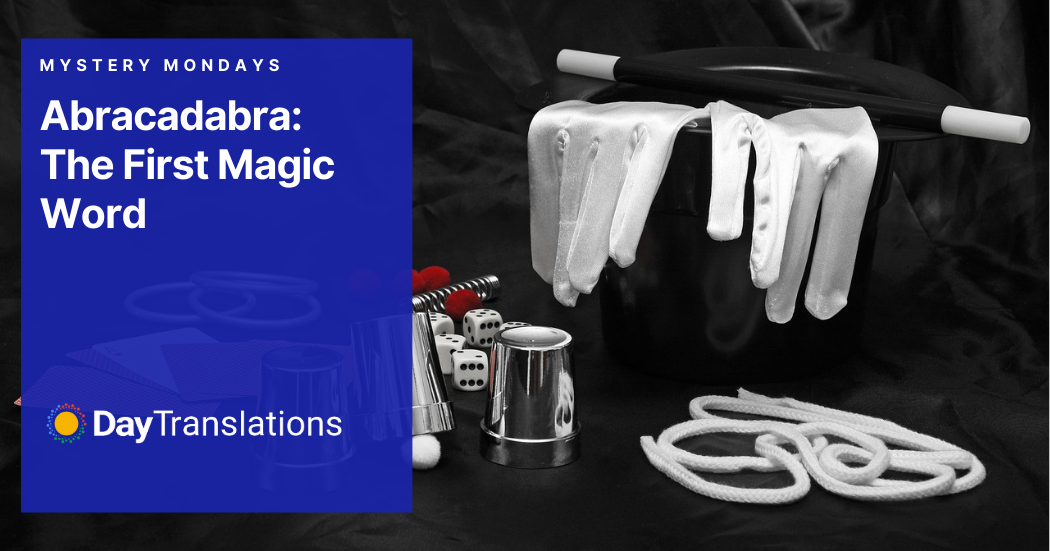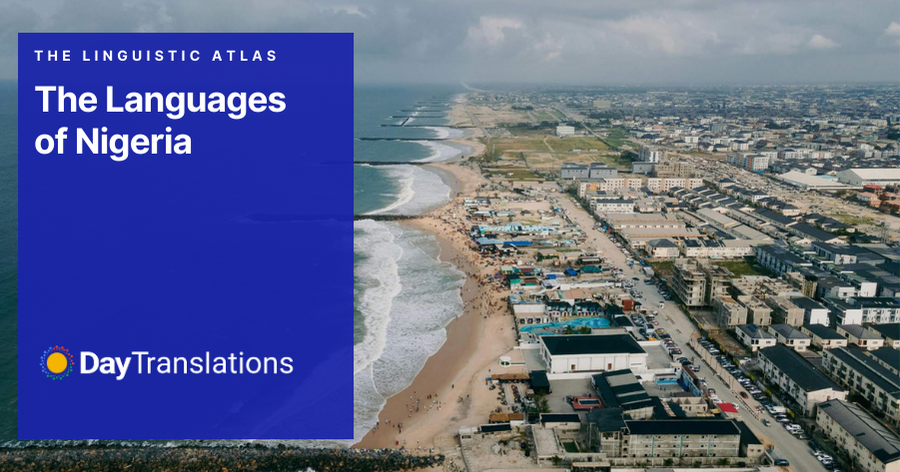For months, we’ve travelled together through the winding corridors of language, uncovering words with twisted pasts, digital disguises, and secret lives. But in this week’s edition of Mystery Mondays, it feels right to explore a word that has captivated the human imagination for over two thousand years. Say it out loud: Abracadabra.
It’s the classic magic word, uttered by stage magicians pulling rabbits from hats, whispered in cartoons, or scribbled by children in chalk as they play sorcerer in the garden. But behind its playful sparkle lies a history steeped in mystery, medicine, and even superstition.
From Spell to Cure
The first known appearance of abracadabra wasn’t in a circus tent or a magician’s hat. It was in a medical text from the 2nd century CE, written by the Roman physician Quintus Serenus Sammonicus.
Sammonicus prescribed the word as a healing charm. He instructed patients suffering from fever and disease to write abracadabra repeatedly in a triangular shape, each line dropping one letter until only a single “a” remained. The written charm was then worn around the neck like an amulet, believed to drive sickness away as the letters disappeared.
For centuries, people across Europe took this practice seriously. Medieval physicians recommended the same triangular incantation against plague, toothache, and even blindness. For them, abracadabra wasn’t entertainment, it was survival.
What Does it Mean?
The true origin of abracadabra has puzzled scholars for ages. Some leading theories include:
- Aramaic roots: From avra kehdabra, meaning “I will create as I speak.” This interpretation highlights the ancient belief in the creative power of words themselves.
- Hebrew connections: Similar to the Hebrew phrase abreq ad habra, meaning “hurl your thunderbolt even unto death.” A powerful incantation against unseen forces.
- Gnostic magic: Early Gnostic sects in the Near East used abracadabra as a mystical word tied to the name of the god Abraxas, a figure associated with cosmic balance.
Whether Aramaic, Hebrew, or mystical Greek, the word was always tied to the power of speech as action, a spell where utterance itself was creation.
Abracadabra: The Fall into Trickery
By the 17th and 18th centuries, the Enlightenment had chipped away at the idea of abracadabra as a real cure. Physicians dismissed it as superstition, but the word was too flashy to disappear.
Instead, it slipped from medicine into performance. Stage magicians adopted it as their signature chant. Why? Because it already carried an aura of mystery, with roots in ancient magic and superstition. Saying abracadabra signaled to audiences that something wondrous was about to happen.
From there, it leapt into pop culture: children’s games, cartoons, fantasy novels, and eventually, the stereotype of the magician in a black cape commanding the impossible with a single word.
Abracadabra in the Modern Era
Today, abracadabra has a playful reputation. It’s shorthand for anything that happens suddenly or magically:
- “She waved her hand and, abracadabra!, the mess was gone.”
- “No abracadabra here, just hard work.”
But traces of its mystical past remain. The phrase “words have power” feels especially fitting for this ancient incantation, because that was its original belief: speech could create, cure, or transform reality.
Interestingly, its triangular charm is still occasionally referenced in modern wellness and occult circles, not as medical science but as a symbolic reminder of the healing power of intention.
Final Thoughts
As we close the book on Mystery Mondays, abracadabra feels like the perfect sendoff. It embodies everything this series has been about: words that carry hidden histories, surprising twists, and timeless influence.
It began as a cure, became a spell, turned into entertainment, and now lives on as one of the world’s most famous words of wonder.
And maybe, just maybe, abracadabra is more than child’s play. Maybe it’s a reminder that words themselves are magic, the oldest magic humans know.
And so, with one last incantation, Mystery Mondays signs off. Thank you for joining the journey. Until we meet again: Abracadabra.












Sorry, the comment form is closed at this time.